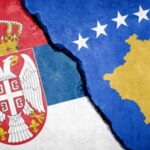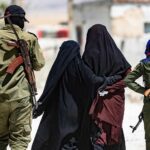By Alba Cela
In the last days of March, the Foreign Affairs ministers of Albania, North Macedonia, Montenegro, and Kosovo launched the “Western Balkans Quad – 100% alignment with EU Common Foreign Security Policy”1 as a platform to address CFSP in the sensitive geopolitical context brought about by Russian aggression in Ukraine. All countries are on the path to accession into the European Union, although at different specific points. The focus of the first meeting of Quad was reported to be “the full alignment of the four countries from the Quad group with the EU’s foreign and security policy in light of the new geopolitical reality, hybrid threats, energy crisis, and economic consequences caused by the Russian invasion of Ukraine.” These issues have repeatedly been the focus of almost every regional or European meeting since February 2022. This new informal platform is the latest addition to an overwhelming myriad of regional constellations, mechanisms, initiatives, annual forums, etc. Alignment with the EU’s standard foreign security policy is a non-negotiable condition embedded in the integration process. It is a separate dedicated chapter in the negotiations plan with all the homework and commitments that entails.
The four countries have numerous opportunities, almost monthly ones, to meet and discuss issues of common interest and coordination in the field of foreign policy and security and subsequently agree on common positions or actions. Additionally, we haven’t explored all the possibilities of integrating this issue into the Berlin Process, the only one that actually gathers all six of them and could address the real issues: the countries that differ from EU CFSP and pressure them to change course. It is unclear what the concrete purpose of this initiative is and, more specifically, what its added value can be. It is no secret that the modest administrations of the foreign policy sector in the region’s countries are already struggling under the weight of managing a juggernaut of meetings, reports, and action plans, and keeping track of their participation and contribution.
Perceptions and alignments
In Serbia the Quad, is seen by some experts as not just another locally proposed initiative but as the counterpart to the dangerous idea of the Serbian world- Srbski svet- vocally defended by Serbian Minister Vulin. This has been reinforced by other international experts which see in the region the delineation of projects to align the interest of ethnic majorities.2
Serbia has never aligned itself with the EU CSDP when it comes to sanctions. Its influence is decisive also in the position of Bosnia Herzegovina that is in the same association due to the Republika Srpska’s stance. Yet Serbia remains de facto the front runner in the process of integration and despite the initial calls for the country to take sides convincingly, including here a resolution from the EU Parliament to condition negotiations upon doing so3, not much has happened. The EU does not want to alienate further the Serbian political elite or even the public whose numbers of support are falling consistently.
EU: the destructive ambiguity
The position of the European Union towards the new geopolitical realities in the continent has moved very little form its trademark ambiguity. The Union has not rewarded the alignment of the countries with its sanctions policy and most importantly has not exerted any real pressure let alone punishment on those who don’t. Coming to natural end of the mandate of EU institutions, due to be renewed after EU elections next summer, EU officials are scrambling for an achievement that can be considered their legacy in the region. So far the opening of the College of Europe in Tirana seems to be the sole North Star in this respect.
With enlargement frozen in its tracks, bilateral disputes still far from finding a path forward and the war at its doorstep the EU is watching passively as a myriad of initiatives and alignments, formal and informal try to fill in its void as countries seek to anchor themselves to the new realities.
So many initiatives yet few resources to make an impact
Quantity is not the only problem. With so many regional constellations in place, controversy is almost inevitable. Recently, competing narratives, such as the case of Open Balkans, have sown divisions among countries in the region when it comes to the modalities and vision of cooperation and ways of moving forward. The Open Balkans with its juxtaposition to the Berlin process and its ad-hoc series of meetings nature has started to resemble a soft power club of sorts with the most memorable meetings of he Prime Ministers in local wine promotion events.
The focus for the Ministries should be instead in increasing human resources capabilities and even expanding the directories in charge of the existing regional mechanisms in order to ensure better impact, coordination, monitoring and outreach. In addition, they should enhance and recalibrate their openness towards civil society cooperation. The integration process will
take care of the CSFP on its own just fine. This year alone will see these administrations struggling to meet the preparation and organizational needs of the Berlin Process Summit in Tirana in October and two EPC Summits in Moldova and Spain respectively in addition the usual workload of other regional platform conventions. In this light, the Quad seems like a cheerful club of the like-minded, positive but not convincingly necessary.
________________________________________________________________________________________________________
1 ‘Four Western Balkan countries launched “100% Alignment with CFSP” platform’, https://europeanwesternbalkans. com/2023/03/29/four-western-balkan-countries-launched100-alignment-with-cfsp-platform/
2 Janusz Bugajski’s Washington View: Dividing Western Balkans into Spheres of Influence https://istraga.ba/ janusz-bugajskis-washington-view-dividing-western-balkans-into-spheres-of-influence/
3 ‘European Parliament Links Serbia’s Progress to Sanctions on Russia’ https://balkaninsight.com/2022/11/23/european-parliament-links-serbias-progress-to-sanctions-on-russia/





